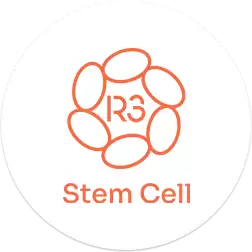Adipose-derived stem cells have piqued the interest of medical professionals for therapeutic applications. The cells appear to play an essential role in cell therapies and regenerative medicines.
Adipose-derived stem cells or ASCs have low immunogenicity. Their ability to multiply into various tissue-specific progenitors into damaged sites sets them apart from other cell types. These stem cells can self-renew and can act through paracrine and autocrine pathways. This is the primary mechanism by which regeneration and cell repair occur.
Let’s plunge into the details to learn more about the role and mechanism of adipose-derived stem cells.
What are Adipose-derived Stem Cells
Experts or medical professionals first used adipose tissue as a grafting tool in cosmetic surgery. They isolated stromal vascular fraction from adipose tissue to regenerate new tissues.
Today, experts use adipose tissue for regeneration as it has an abundance of multipotent stem cells, which are popular for their differentiation and proliferative behavior. Typically, this is the reason why medical professionals consider adipose-derived stem cells more effective for wound healing.
ASCs are Mesenchymal stem cells and can differentiate into cells that belong to mesodermic, exodermis, and endodermic cell-specific lineages. Moreover, ASCs have an effective paracrine activity.
Role of Adipose-derived stem cells in Therapeutic Advancements
When experts transplant adipose-derived stem cells into a damaged site, the cells interact with the adjacent microenvironment. They lead to the generation of committed cells and progenitors.
In addition to that, adipose-derived stem cells secrete or produce exosomes growth factors, micro-RNA, chemokines, and cytokines. All these biomolecular contribute to restoring biological function and tissue defects.
They also stimulate several molecular mechanisms such as immunomodulation, cell proliferation, and angiogenesis. They play an important role in repairing damaged tissues. Several studies show that adipose-derived stem cells are immunomodulatory actors. They lack MHC class –II that opens the way to therapeutic studies in allogeneic settings.
There is a bulk of evidence related to the immunomodulatory effects of ASCs on their regenerative and healing ability. The type of stem cells can help patients regulate molecules that have antimicrobial activities. This quality also helps people reduce pain significantly and makes ASCs a promising tool against cytokines storms and infections.
Benefits of Using Adipose-Derived Stem Cells
Adipose stem cell therapy Phoenix has proven efficiency and efficacy for various treatments. It holds promise in various regenerative processes.
Fat-derived stem cell therapy AZ can be a long-term solution for restoring autoimmune, wound defects, bone regeneration, and neurodegenerative diseases.
Adipose stem cell therapy is not a passive energy store that represents an endocrine organ to modulate metabolism. The role has evolved and helps patients improve immunity as a phenotype to lead to pathologic processes.
Summing Up
All in all, adipose-derived stem cells can offer plenty of benefits to speed up healing and treat bone degeneration diseases. They have the ability to self-renew and differentiate into various cells.


No Comments